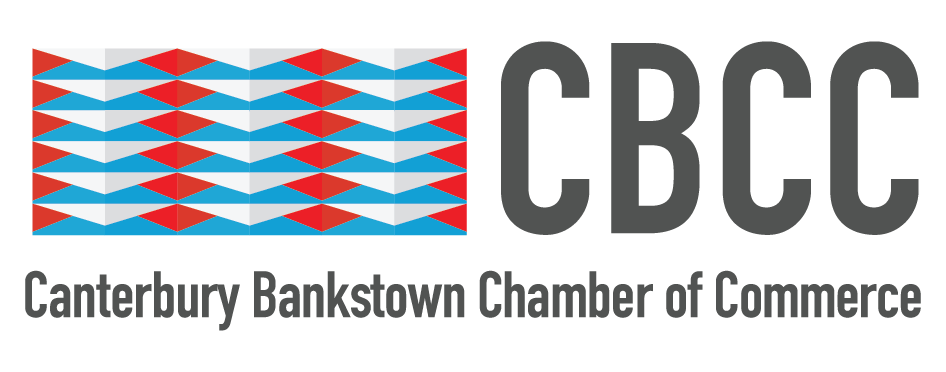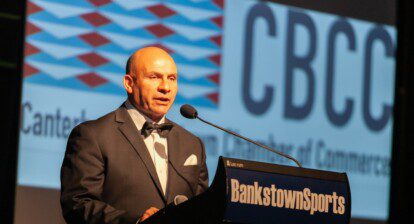Return to Work Realities: 6 Tips For A Strong Comeback | CBCC News
There are many reasons why career breaks happen. You could have become a new parent, you decided to travel the world, you needed to take care of a family member, you sustained a workplace injury and just finished recovering.
Now, you’re ready to return to work. But where do you even start? How do you explain the gap in your résumé? Who would be willing to hire you after a long break?
Shifting Attitudes On Career Breaks
There is an age-old stigma attached to people who take a career break. Research from LinkedIn shows that one in five hiring managers reject people who’ve had an extended period off work. A recent study conducted by UNSW revealed that 51% of women lacked confidence, preventing them from getting ahead in their careers after a break.
Despite these results, there is good news! The narrative around career breaks has been changing, especially since the pandemic. LinkedIn data reveals that nearly two-thirds of hiring managers say they’re more likely now than before the pandemic to hire someone who is returning to work.
This is because, despite leaving the workforce temporarily, many employees are still developing relevant skills. 53% of return to work employees say they are better at their job.
More importantly, 50% of hiring managers believe that many employees gain valuable soft skills during their time away from work, whilst 51% of hiring managers believe that workers who take breaks can restart their career any time.
In recognition of these new trends, LinkedIn recently added a feature allowing its users to add career breaks to their résumé. Now, instead of having an employment gap that may have raised questions with prospective employers, LinkedIn users can now show employers how they used their break and increased their value as an worker if they wish.
“A career is a series of ups and downs, of comebacks.”
Steve Guttenberg, actor
How Many People Actually Take A Career Break?
According to the Australian Bureau of Statistics, 4% of employees have taken a career break for six months or more. Out of that population, 73% were women who did so for ‘family reasons’.
There is also a generational shift within the current workforce. According to a LinkedIn survey, 64% of working women have taken a career break, compared to 62% of all employees worldwide. Amongst the younger generations, the vast majority of millennials (84%) expect to take an extended break at some point during their career.
The most popular reasons for career breaks include:
- Parental Leave (22%)
- Medical Leave (17%)
- Mental Health Reasons (14%)
Other common reasons include younger workers heading off into the world for a gap year or family caregiving, especially for elderly family members experiencing debilitating illnesses.


It's Time To Make A Comeback
Now that you’re ready to return to work, what’s next?
If you haven’t worked for a long period of time, returning to work may be more of a challenge than you expect. If you were away from work to recover from a work-related injury or illness, planning your return to work in advance with your manager, your previous team, your medical team, and your family can help make the transition easier and less intimidating.
In general, you can expect new responsibilities, a new routine and new people to deal with on a daily basis. Depending on how long you were away from the workforce, you could also be faced with new technology and a completely different job market.
Prepare yourself by setting time aside to mentally gear yourself to re-enter the workforce. Attending industry-related training, courses, or seminars could help you validate and improve your existing skills. Chatting with your former colleagues could help you prepare for what your industry currently looks like.
This way, you can get into the right headspace to prepare for a strong comeback into the workforce!
“When you’ve got something to prove, there’s nothing greater than a challenge.”
– Terry Bradshaw, former American football quarterback
6 Tips For Returning To Work Successfully
1. Assess Your Situation
One of the first steps in returning to work is to assess your situation and focus on your needs. What are your strengths and weaknesses? What do you value most in a work position and in an employer? What do you want out of your career?
Your skills and interests could have changed since you last had a job, so it is important to evaluate what positions will fit you best in this time of your life. Ask yourself what work activities you enjoy the most so that you can concentrate on applying for positions that will support them and give you a work environment that you will enjoy.
2. Refresh your résumé
No matter the reason for your absence, it is a good idea to revisit and update your résumé to include any additional skills and/or experiences that you gained that can relate back to the position you’re applying for.
You can also use this opportunity to address the reasons for your career break so that any hiring managers can learn more about you and your gap in employment.
If the reason for your career break is sensitive or traumatic, such as leaving to take care of a family member who has since passed away, do not feel obliged to disclose more than you are comfortable with. Simply explaining that you are now ready to return to work will be enough.
3. Rebuild your professional network
Even if you have been away from work for a significant length of time, you will probably still have a network of people who can give you more information as you prepare to re-enter the workforce. Family members, friends, neighbours, previous co-workers, they are all people who can give you advice, opportunities, or offer to be a reference for you during the job application process.
There are also many professional opportunities to help you build your network before you restart your career. Joining professional associations like the CBCC, attending networking events, and going to industry-specific conferences can teach you something new or meet others with similar interests.
4. Consider Part-Time or Freelance Work
Although you may look forward to returning to work, transitioning from not working a standard schedule to getting back into traditional work can be a very different experience for many people.
If you think it may be a lot to adapt to, looking for part-time positions or accepting contract work can be a great way to help you ease back into a regular full-time work schedule.
It might also help you build your confidence in your professional skills and strengthen your professional network without the pressures of full-time roles.
5. Consider Career Returner Programs
Many programs exist to support employees looing to restart their careers after an extended break, such as:
- A Returnship, which is a return to work program designed to ease employees back into their careers. These can be either a formal arrangement with tasks and milestones, or a more casual agreement. Returnships are especially helpful for those returning to work after injury. If this is something that appeals to you, discuss a Returnship with your workplace.
- Joining career returner programs that are specifically designed on helping you re-enter the workforce. These programs may include offering workshops on topics related to employment, or pairing you with a mentor. The CBCC’s BRAVE program is one such program.
6. Prepare for your interview
Any interview can feel nerve-wracking, but those first few interviews after you begin searching for work again can feel especially anxiety-inducing.
Work with your friends, family, or mentor to develop answers that openly and honestly showcase your personality, talents, and skills. Remember to share what you did during your career break and consider explaining why you took a break.
Look up sample interviews and practice answering their questions. Practice projecting confidence too, even if you don’t feel particularly confident. Fake it till you make it! The more confidence you display, the more confident hiring managers will feel about you as a viable candidate for the role.


Feeling nervous about restarting your career? Become a CBCC member and become part of a supportive and expansive network of driven and ambitious business leaders who can help you kickstart your career comeback.
If you are a woman looking to return to work, we have the BRAVE program, a return-to-work program aimed at helping women get back into the workforce through mentorship. Subscribe to our monthly magazine and follow our socials to learn more.








Customer Reviews
Thanks for submitting your comment!